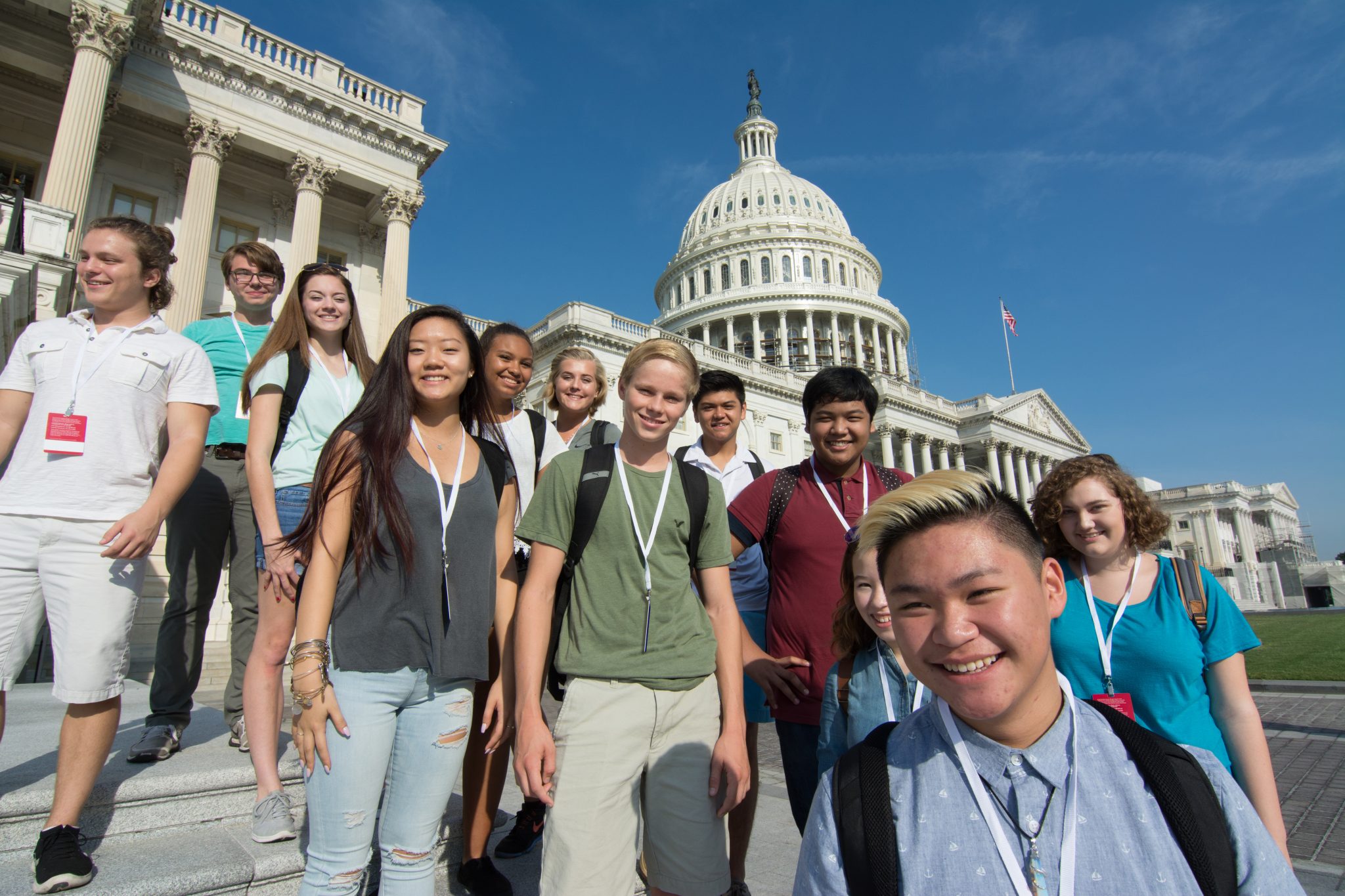The Best United States Destinations to Visit in the Fall
The post The Best United States Destinations to Visit in the Fall appeared first on The Blonde Abroad.


Before the coronavirus crisis struck, WorldStrides organized educational trips for 550,000 students each year. WorldStrides
The post A Local’s Guide to Boston appeared first on The Blonde Abroad.

Going on safari is the experience of a lifetime. From when we’re small children, many of us dream of seeing lions and elephants in the wild, roaming the plains of Africa.
There are a number of countries where you can embark on an adventure and see animals in their natural habitats, with two of the most popular being Kenya and South Africa. But which country offers the best safari experience?
The answer depends on the kind of trip you are looking for.
The first step to going on safari in Africa is to make travel arrangements and ensure you have authorization to enter your chosen country.
Both Kenya and South Africa are easy to visit for travelers from many countries.
Kenya has an electronic visa (eVisa) available for visitors of most nationalities. This can be obtained from any location with an internet connection by filling out a Kenya online visa application, cutting out the time-consuming process of applying for a visa at an embassy. Once you have your visa confirmation, you can travel to Kenya, and Nairobi will most likely be your starting point.
There are only a small number of countries whose citizens must apply in person for a Kenyan visa. On the other hand, visitors from over 40 countries (mainly in Africa and the Caribbean) can enter Kenya without any visa at all.
South Africa has yet to introduce its own eVisa system, but citizens of around 70 countries can visit visa-free for up to either 30 or 90 days. However, if you are not a national of one of these nations, you’ll have to head to your nearest South African embassy to apply for a tourist visa.
Both Kenya and South Africa are great places to see a diverse array of animals, including Africa’s “big 5” game: lions, leopards, elephants, rhinos, and Cape buffalo.
More of Kenya’s land is dedicated to national park space and wildlife reserves than South Africa, including the world-famous Masai Mara. There is a huge concentration of wildlife here, with many visitors ticking off the big 5 as well as cheetahs, zebras, giraffes, and wildebeest within a few days.
South Africa is home to its own famous safari location in the Kruger National Park. This is also rich in biodiversity and safari-goers are rarely disappointed with the animals they see.
The one factor that gives Kenya the edge is the Great Migration. Each year, around 1.3 million wildebeest, half a million gazelles, 200,000 zebras, and thousands of other antelope make the journey south from the Masai Mara over the border into Tanzania around July, returning en masse in October. One of the most impressive natural events in the world, it is well worth choosing a safari in Kenya to witness this epic exodus of animals.
Safari tours in Kenya also allow more room for approaching and getting up close to wildlife. Drivers and guides may slowly approach animals, not so as to disturb them, but to allow a better angle for your photos. The rules in South Africa are much stricter and you may have to settle for watching from a distance.

Kenya tends to be a bit wilder than South Africa, so if you’re happy to camp in tents and feel closer to nature, Kenya’s a good call. However, if you want to stay in a lodge with clean facilities, it will not come cheap. There are few options in between fancier private accommodation and camping.
South Africa’s national parks, on the other hand, are built with visitors in mind. There are a range of different lodges, from more affordable cottages and bungalows to luxury private lodges. All accommodation tends to be of good standard, with clean facilities, a natural setting, and many come with bonus features like golf courses.
South Africa tends to be more family-friendly, with great options for visitors with children. The roads are better paved and infrastructure is better developed. This is a big plus if you want to drive around the parks yourself. Yes, this is an option in South Africa (as long as you stick to the rules). Of course, there are also guided tours if you’d prefer, which are practically the only option in Kenya.
However, this all comes at the expense of some of the wildness. South Africa gets full marks for being comfortable, having budget options, and being ideal for families, but it can’t help but feel a little controlled and sanitized, compared to the authenticity of Kenya. Again, it depends what you prefer.
It’s always worth bearing in mind that whichever country you choose for a safari, you’re probably going to need to get vaccinated against certain local diseases.
Surprisingly, South Africa has relatively few required vaccinations for travelers, with basic coverage against measles, hepatitis, and typhoid recommended.
The risk of serious diseases like malaria and bilharzia is much lower. Malaria tablets are only recommended for certain areas of the country. While national parks are generally hot-spots for mosquitoes that carry the disease, South Africa is unique on the continent for having a number of safari destinations that are free of malaria.
When on safari in Kenya, malaria tablets are a must and the list of vaccinations is more comprehensive.

If you’re going to make the trip to Africa, you’ll want to do more than just go on safari. Both Kenya and South Africa have idyllic stretches of coastline, which are great for beach lovers.
Once again, South Africa is better for families and those seeking a bit of luxury. The country has a number of beach resorts catering for visitors of all budgets, which are perfect for relaxing at.
Kenya, however, has a cultural ace in the hole. While it may not have the number or level of resorts as South Africa, it does have a number of fascinating ancient ports and medieval ruins, such as Gedi, to explore. History buffs and lovers of old architecture may get a lot more out of a holiday in Kenya than South Africa.
Two countries, two very different safari experiences. For a more wildlife-focussed, authentic experience in the wilds of Africa, Kenya probably has the edge, while for more comfort and a more rounded experience that all the family can enjoy, South Africa may be the better choice. Either way, it will a trip you will never forget.
The post Is Kenya or South Africa Better for a Safari? appeared first on Wandering Earl.

If you want to live the expat life, with dreams of living affordably and comfortably in a foreign land that offers an enticing set of benefits, it’s possible. It’s not always straightforward and simple, but it’s possible.
While it would be wonderful if we could just show up in a new country, find a place to live and get settled into a new life, unfortunately, that’s not how it works. You can do that for a limited period of time (usually up to 3 months) in many places but beyond that timeframe, the process gets trickier.
This is why it’s vital to not just plan ahead, but to really dedicate significant time to figuring out how to achieve your expat goal before you buy a plane ticket or start looking for apartments. The more you plan ahead, the easier the process and the better your chances of making it happen.
When I recently got a residency visa for Spain, the process seemed overwhelming at first. But I spent a week examining everything I needed to do in order to apply and when the time came to move forward, I only needed 1 week to gather all of the documents and apply at the Spanish Consulate in Miami. Two weeks later, I had my visa and I was good to go.
Without that pre-planning though, the process would have been a mess and taken much, much longer in the end.
Apart from determining how you can actually stay in a country long-term and which visa you might need, there are other things to consider as well that will help ensure the process is smooth and the adjustment to life in a new country is smooth too.
Yes, people all over the world speak English these days and in 20 years of travel, there has never been a time when I was 100% stuck and could not communicate with anyone at all. However, that doesn’t mean you shouldn’t learn the language of the country where you want to live. It’s important that you do. It’s not only respectful to your new country but it’s also going to benefit you by allowing you to communicate better, meet more people and get deeper into the local lifestyle and culture. Expat life will be so much more rewarding as a result.
Start with the basics, dedicate some time each week to expanding your knowledge and focus on the benefits of learning more. If you are headed to Thailand, for example, try out the Simply Learn Thai app, and use that to improve your knowledge, with its 1000+ phrases available at the touch of a button. There are apps for every language and don’t try to rush it. Take it slow, learn a few more words each day and you’ll quickly see the results. Of course, taking professional classes and making sure you use your language skills by directly interacting with locals are also important steps.
Life in a different country can sound extremely appealing. However, there are always going to be surprises or aspects of life that you didn’t expect. Certain things that are easy back home might be complicated in your new land. There will be cultural differences and unique customs that you must adjust too. Life overall will indeed be different that more you realize this ahead of time, the less stressful will be your experience once you arrive.
Keep an open mind, try to learn as much as you can and appreciate the differences. This will help you get adjusted quickly without much friction. Making local friends helps and hanging out with other expats who have been in the country for a long time can help too.
It’s best to learn and join in the new culture instead of shutting yourself out. It can be tough at first but once you’ve figured it out, life will be even more fulfilling.
Not getting too worked up about the differences is the key. It’s only natural that different places will have different ways of life but again, it will all seem normal soon enough.
While it might seem like you’re moving to an inexpensive location, it definitely pays to spend some time figuring out just how much you should expect to spend. A realistic budget takes into account potential surprises (which you can find with some research) that you might not initially think about when moving abroad.
One example is Playa del Carmen, Mexico. This great beach town offers an ideal expat life, with beautiful apartments for less than $1000 per month, within walking distance of the white sand beach and the center of town. You’ll probably have a rooftop pool with a view as well. However, most people don’t realize that the cost of electricity is very high in parts of Playa del Carmen, especially in newer buildings.
If you use the air-conditioner for 10 hours per day, you could end up paying over $200 USD per month in electricity. This could affect your budget greatly and would be an unwelcome surprise if you didn’t know about this before you arrived.
Some countries have very high fees for signing a contract to rent an apartment or house. Other countries might have limited public transportation options, leading you to take more taxis than you normally would take, and therefore spending more money. There are all kinds of possible financial surprises and it’s best to know about them ahead of time.
The best way to get real information is to ask questions to those already living in the place you want to go. Facebook groups, reddit forums and so on are all great resources where you can post your questions and get actual answers that will help you figure out how you will actually spend per month for the lifestyle you prefer.
If you can live off of savings or retirement funds, excellent! If you need to work though, you want to look into the rules before moving to your new country. In general, it can be quite difficult to get a work visa that allows you to work for a local employer. You would typically need a job offer that proves the company couldn’t find any locals to do the work. This is difficult and unless you’re moving between countries in the European Union as an EU citizens, the chances of getting such a visa are low.
If you work online, that’s ideal. In many countries, such as Portugal and Germany, there are actual visas you can get that are designed for those who work online and just want to live in their country as a resident. You can show up, continue your work and avoid the taxation rules as a result, making for an easy adjustment to expat life.
For other countries that don’t offer such a visa, it can be a little more challenging but still doable. You just need to check the local tax and employment rules and figure out how that might apply to you.
Whether you teach English online, design websites, find work on Upwork.com or even work remotely for a company in your home country, wherever you end up, this is going to make life easier than if you need to look for work in the country itself.
Of course, if you do work online and even if you have a small one-person business, it’s best to make sure that your operation complies with the laws of your home country before you move abroad. This could involve having the proper business structure, tax numbers, bank account and business insurance, which doesn’t need to be a huge expense but offers some useful peace of mind.
—
The allure of the expat life is real and these days, it’s easier than ever to make happen. What you don’t want to do is decide to move to a new country, buy a plane ticket and only then realize that there is much more to the process than you imagined.
From cultural surprises to unexpected expenses to visa rules to work eligibility and so on, being an expat can be quite frustrating if you don’t take the time to understand the situation before you leave.
It’s worth doing the research and being prepared in advance. This will certainly lead to a smoother transition from life in your home country to those wonderful expat dreams.
The post How to Plan for Expat Life Around the World appeared first on Wandering Earl.

U.S. hotel unemployment dropped to 29.9 percent in September but remains roughly four times higher than the national average. andrewbecks / Pixabay

Universities with hospitality schools like Cornell (pictured) aren’t likely to make swift changes to curriculum in light of coronavirus. But the pandemic is a hot topic within every classroom. sach1tb / Wikimedia

The Upper House Hotel in Hong Kong. The world’s leisure travelers are planning trips again, but their responses to a survey released by Amadeus on Wednesday show a thirst for vacations. Swire Hotels
We are glad that you preferred to contact us. Please fill our short form and one of our friendly team members will contact you back.